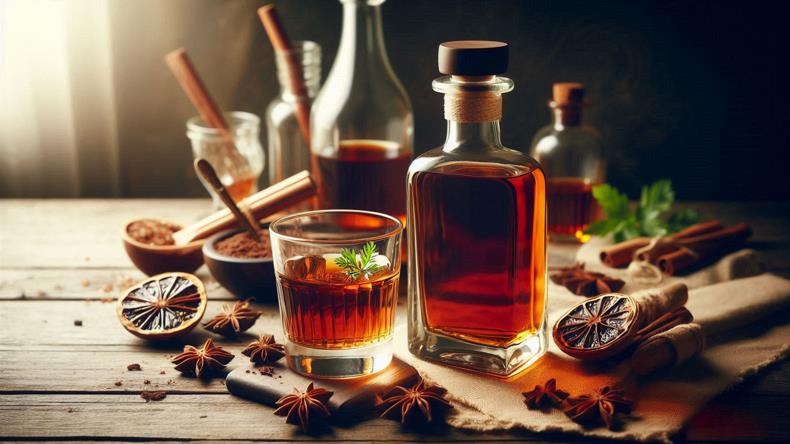Check how South Africa Avoiding Alcohol in Lockdown
The global pandemic has pushed countries to adopt some drastic measures, but South Africa’s approach to alcohol during its lockdown was among the most peculiar. Back in 2020, a complete ban on alcohol sales was introduced nationwide as part of its effort to control the spread of COVID-19. With people stocking up before the lockdown — some even showing off their stashes in viral drinking challenges on social media — it wasn’t long before the alcohol ban stirred up some interesting developments.
From homebrewing to cross-border liquor runs, South Africans found creative (and sometimes illegal) ways to cope. Fast forward to 2024, and we’ve got some updates on how the situation evolved and where the country stands now.
The Impact on South Africa’s Alcohol Industry
Distell is well ready for almost just about any eventuality.
Among the most peculiar on the planet, Even the prohibition, was introduced underneath a lock-down that was nationally to restrain the spread of their coronavirus. When people stocked upward – a few revealing their bounty off by distributing drinking struggles onto networking marketing – that the expansion of their shutdown also has directed several tipplers to try out dwelling brewing.
Distell, that competes Pernod Ricard SA along with Diageo, exports roughly R 3 billion values of spirits wine and citrus services and products per calendar yr. It is shedding on R-8.2 million just about every evening that the ban continues to be in location. SA has foregone up to as R200 million weekly at earnings in accordance with industry quotes.

What is leading to Distell stress is the fact that, along with this moratorium on earnings, imports are prohibited, crimping exports into important markets such as both the US, Europe and China. The standing as the world wine exporter of south Africa is at peril, CEO Richard Rushton explained.
Back in 2020, Richard Rushton, Distell’s CEO, expressed grave concern about South Africa’s reputation in the global wine market. Four years later, much of that concern has dissipated, thanks to strategic pivots in marketing and a surge in international wine tourism, though the scars from the ban are still visible in production figures.
And trucks booze has been intercepted by authorities enforcers, for example vehicles possessed by anheuser busch InBev SA observed leaving depots . The business said it’d consent.
The Temporary Silver Lining: Reduced Trauma Cases
It isn’t . Some of many advantages of the liquor prohibit was the the decrease in consuming caused 9 000 injury instances in hospital wards, or even per year according to also a researcher in the South Africa Medical Research Council, Charles Parry. That is stressing bottlers for example spirits and wine company Distell team.
Even a ban on alcoholic beverages sales will be forcing South Africans to slipping across the boundary looking for a beverage from experimentation to find innovative.
One of the surprising benefits of South Africa’s alcohol ban was a notable reduction in trauma cases in hospitals. According to Charles Parry, a researcher at the South Africa Medical Research Council, the country saw around 9,000 fewer injury cases in hospital wards — injuries that are usually linked to alcohol consumption.
It turns out that, despite the economic drawbacks, the alcohol ban may have offered some public health insights into the relationship between alcohol and violent behavior. In 2024, some advocates are calling for stricter alcohol regulations based on these findings, although the idea remains highly controversial.

In addition, it is contributed to task that was lead, together with Police Minister Bheki Cele condemning more than just several dozen spirits stores’ intrusion and looting.
Lots of limitations will stay set up, for example, prohibition in the purchase of liquor while South Africa will soon start easing the lock-down by the conclusion of April. It really is however not yet determined if the export of spirits is going to be let.
Among the ban’s results would be our government is currently becoming taxation earnings in some period the moment it takes financing to rekindle an economy. Nearly 60 percent of those bucks Distell earns is compensated out to regional authorities at a blend of corporate and excise taxation.
“When services and products are not about the shelves, shoppers will decide to endeavor replacements as well as sometimes it’s going to soon likely be much long-lasting misplaced sale,” explained Syd Vianello, a different retail adviser at Johannesburg. “Following the export ban has been raised, it might even be hard to acquire plate space”
“We’ve plans and protocols rather than transition into your secure and liable manufacturing surroundings to meet requirement, along side some alteration from national regulations round the selling of the titles,” Rushton explained.
The others also have obtained slipping over borders steps.
Citrus and grape manufacturers ‘ are currently fighting – Distell purchases higher than just a 3rd of the blossoms of South Africa such as wine, brandy along with ready-to-drink drinks and half of the citrus juice concentrate of the country.
“We’ve a 50% thousand R and in worth open orders for export throughout of our groups, awaiting for overseas clients in markets without a liquor prohibit,” Rushton said in an emailed answer for concerns.
Creative (and Illegal) Solutions: Home Brewing and Cross-Border Runs
With alcohol sales prohibited, many South Africans turned to home brewing and even illegal cross-border alcohol runs to satisfy their thirst. Although home brewing became a quirky lockdown hobby for some, for others, it was a sign of desperation. Meanwhile, police were busy confiscating booze from smugglers, including trucks from giants like Anheuser-Busch InBev SA caught leaving depots with supplies.
By the end of 2020, authorities had cracked down on numerous incidents of alcohol looting, and some restrictions remained in place well into 2021. Now in 2024, South Africa has relaxed its alcohol laws considerably, although the legacy of these illicit activities lingers. New regulations have tightened alcohol distribution channels to prevent a repeat of the smuggling seen during the pandemic.
Economic Fallout: The Cost of Lost Tax Revenue
While South Africa’s lockdown restrictions did succeed in curbing some of the spread of the virus, they came with steep financial costs. One of the major consequences of the alcohol ban was a loss of tax revenue at a time when the country desperately needed funds to support its economy. Nearly 60% of the money that Distell earns goes to the government through a mix of corporate and excise taxes.

For South Africa, which was already in an economic struggle, this loss couldn’t have come at a worse time. By 2024, the country has started to recover, but many small liquor producers who suffered during the ban never fully regained their footing. The larger players, like Distell, have adapted, but the industry has changed permanently. New players, focused on small-batch and craft products, are emerging in the wake of the pandemic’s disruptions.
Border Smuggling: A Pandemic-Fueled Liquor Run
Another wild aspect of the alcohol ban was the rise in cross-border smuggling. People were slipping across borders, risking fines, and more just to get their hands on a drink. Neighboring countries saw an increase in South African customers crossing into their territories for alcohol purchases, leading to tension at some border points. By the end of 2020, Police Minister Bheki Cele had condemned more than just a few dozen alcohol-related looting incidents and smuggling schemes.
Looking at 2024, South Africa has since reformed its approach to alcohol, and strict border controls are no longer necessary. However, the smuggling trend during the pandemic highlighted some vulnerabilities in the country’s trade enforcement, which are now part of broader discussions about border security.
A Brighter Future for the Industry?
South Africa’s alcohol industry is finally beginning to stabilize. Distell Group, one of the country’s biggest wine and spirits companies, is back to operating at full capacity. While the initial lockdown was a crushing blow, the country has bounced back with some lessons learned.
Distell now exports to over 80 countries, and as tourism continues to pick up after the pandemic, South Africa’s wineries are seeing more visitors than ever before. The industry still faces challenges, such as shifts in consumer habits toward lower-alcohol beverages and health-conscious options. However, with a renewed focus on sustainability and local production, the future looks promising.
FAQs on Alcohol and South Africa
Why did South Africa ban alcohol during lockdown?
South Africa banned alcohol during its COVID-19 lockdown primarily to reduce hospital admissions and ease the burden on the healthcare system. Alcohol-related injuries and violence, particularly trauma cases, tend to increase pressure on emergency rooms, and the government sought to free up resources to focus on treating COVID-19 patients.
What are the new alcohol laws in South Africa?
As of 2024, alcohol laws in South Africa have become more regulated but less restrictive than during the lockdown. The key changes include stricter rules on the sale of alcohol in certain areas and at certain times. For example, alcohol sales are usually restricted to specific hours and days, with some regions only allowing sales between 10 AM and 6 PM, Monday through Saturday. Additionally, new policies have been introduced to prevent irresponsible drinking, like higher taxes on alcoholic beverages and tighter control over advertising.
What are the drinking rules in South Africa?
In South Africa, the legal drinking age is 18 years old. Public drinking is largely regulated, and open containers of alcohol are generally not allowed in public spaces, although enforcement may vary by region. Bars, restaurants, and retailers can only sell alcohol during designated hours, and it is illegal to sell alcohol to intoxicated individuals. Some regions also impose restrictions on alcohol sales on Sundays or public holidays. Drunk driving is strictly prohibited, with a blood alcohol limit of 0.05 grams per 100 milliliters for drivers.
Does South Africa have an alcohol problem?
Yes, South Africa has long struggled with alcohol-related issues. The country has one of the highest per capita alcohol consumption rates in the world, and this has led to significant public health challenges, including high rates of alcohol-related violence, accidents, and chronic illnesses. Alcohol abuse is also linked to social problems such as domestic violence and crime. While the alcohol ban during the lockdown highlighted the extent of these issues, the government continues to work on new policies aimed at reducing alcohol-related harm.










